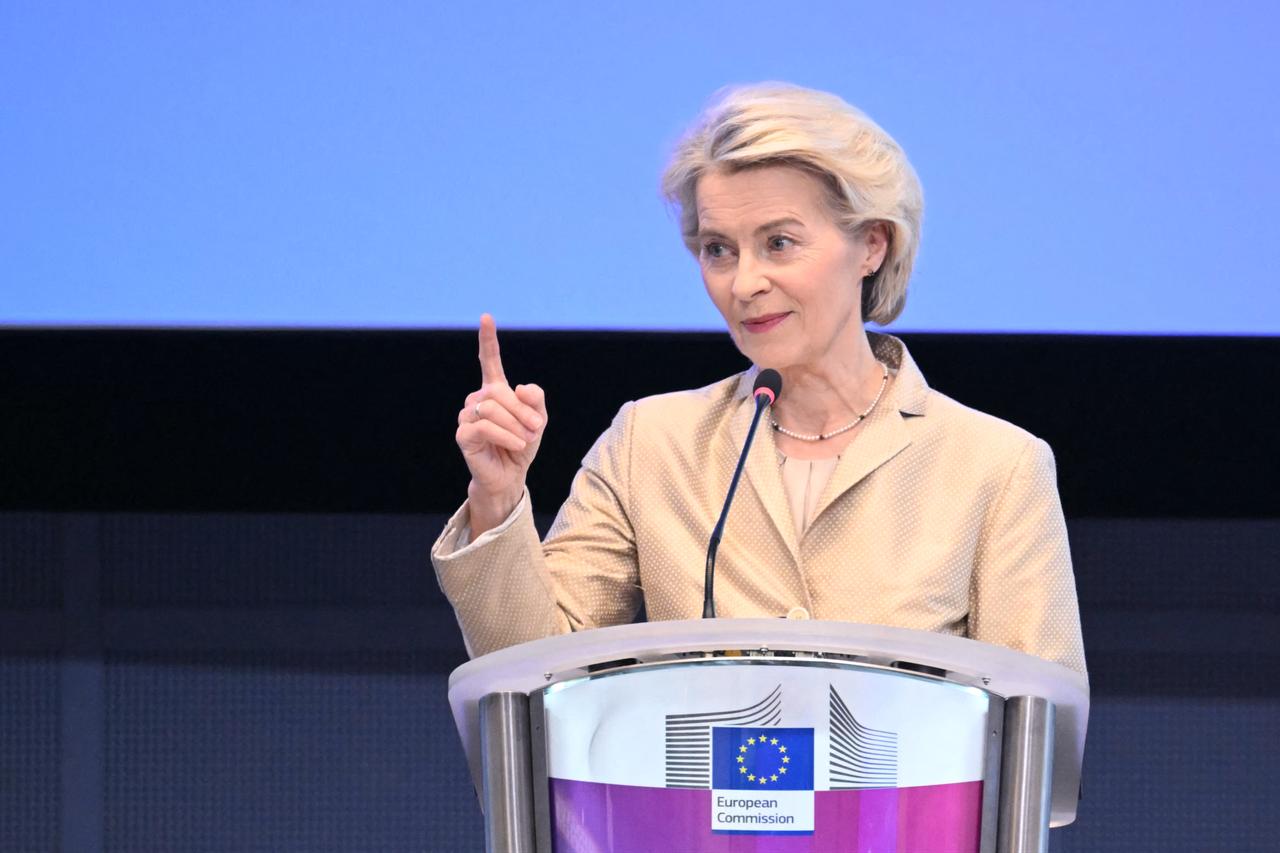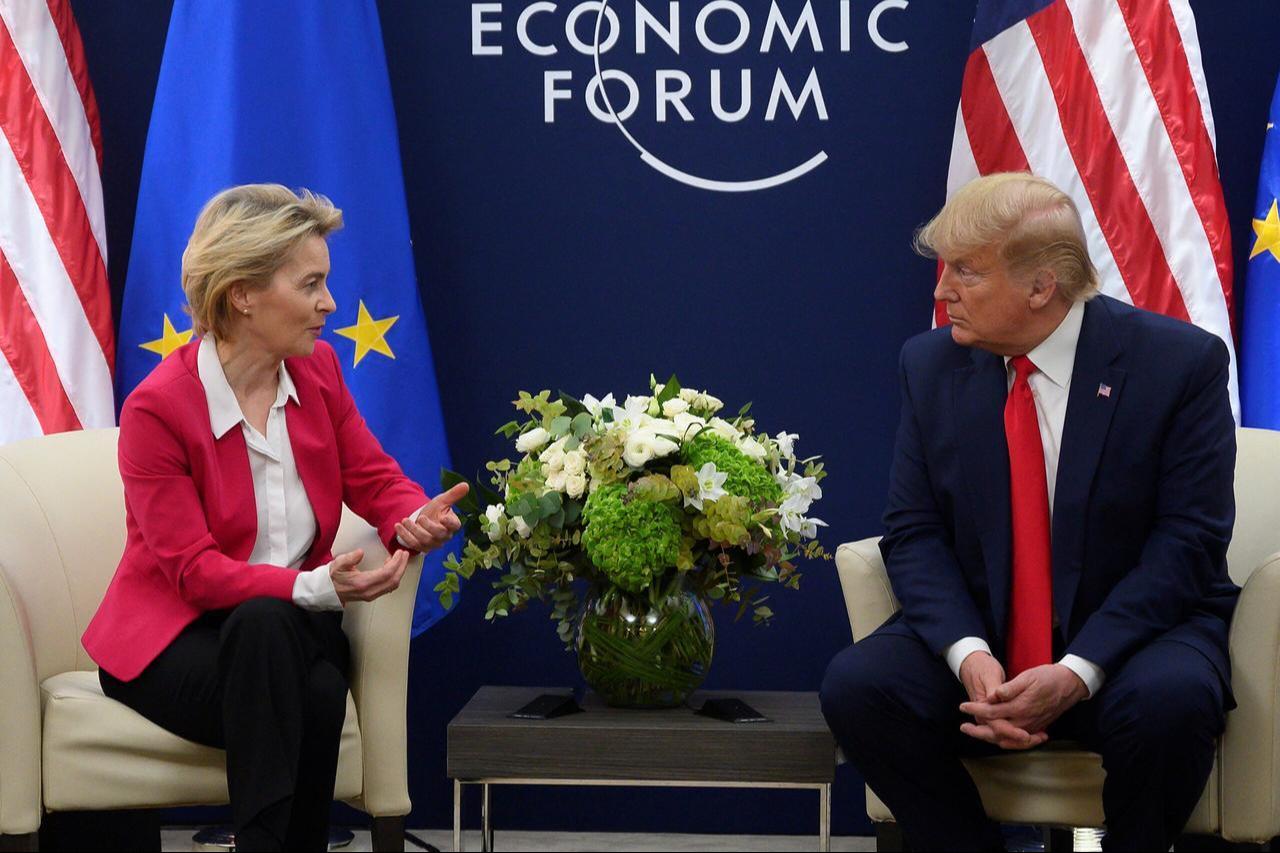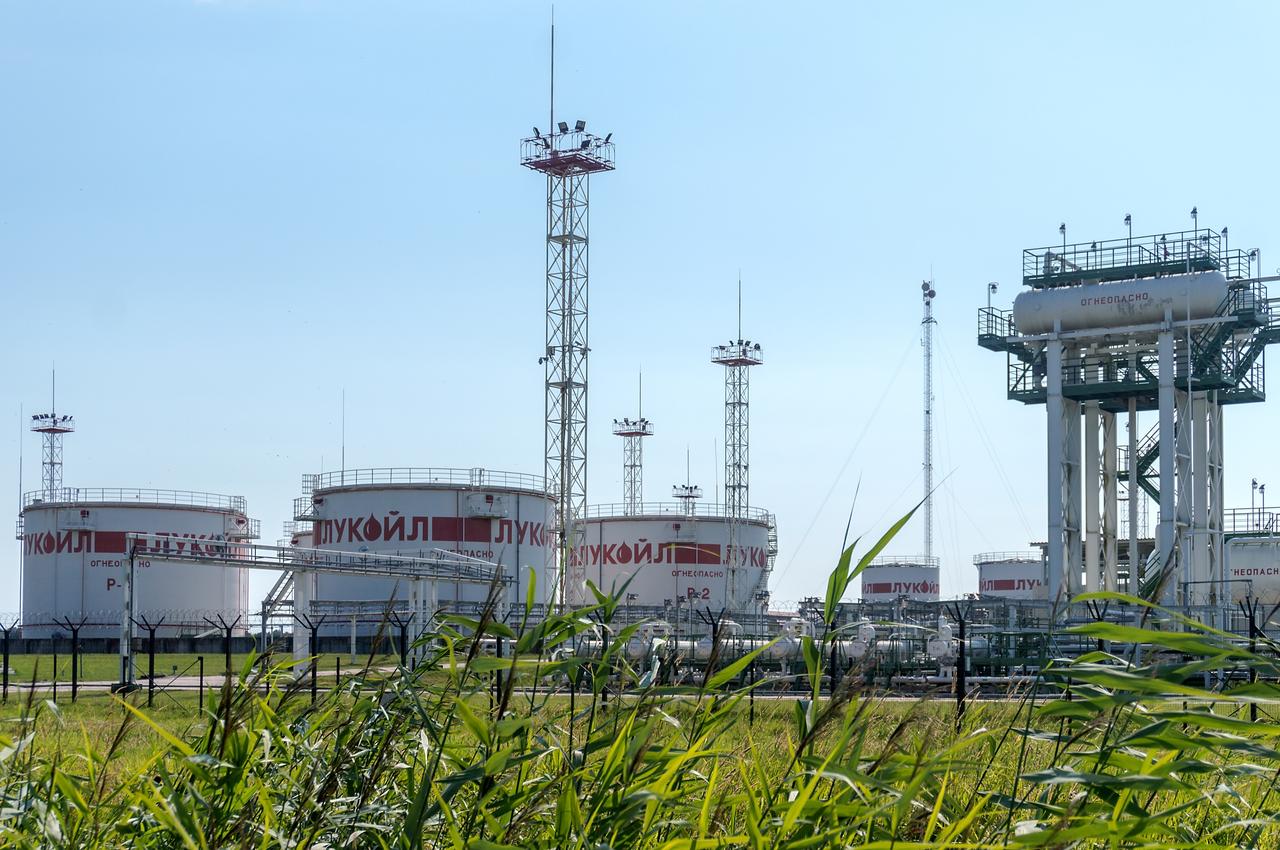
European Commission President Ursula von der Leyen announced Tuesday that the European Union will propose accelerating its plan to end imports of Russian fossil fuels as part of the bloc’s upcoming 19th package of sanctions against Moscow.
"Russia’s war economy, sustained by revenues from fossil fuels, is financing the bloodshed in Ukraine. To put an end to it, the Commission will propose speeding up the phase-out of Russian fossil imports," von der Leyen said on the U.S. social media platform X after holding a phone call with U.S. President Donald Trump.
The announcement came shortly after Trump criticized European governments for what he described as insufficient sanctions against Russia.
He noted that some European countries still purchase Russian oil despite earlier commitments to reduce energy dependence.
"Europe is buying oil from Russia. I don’t want them to buy oil, and the sanctions that they’re putting on are not tough enough," Trump told reporters on Sept. 15, adding that Washington expected measures "commensurate with what I’m doing."

The new EU sanctions package is expected to introduce tighter restrictions on Russia’s banking sector, energy revenues, and the use of cryptocurrencies to circumvent existing measures.
Since the war in Ukraine began in February 2022, the EU has progressively banned imports of Russian coal and most crude oil while placing financial sanctions on Russian banks, companies, and individuals.
Alongside the Group of Seven (G7) nations, the bloc also implemented a price cap on Russian oil.
In response, Russia redirected energy exports to markets such as China and India.

The EU’s 27 member states have already pledged to completely end imports of Russian oil and natural gas by Jan. 1, 2028.
Eurostat data shows that petroleum oil imports from Russia fell from 29% of the EU’s total in the first quarter of 2021 to just 2% by the second quarter of 2025.
However, it still contributed €2.8 billion ($3.31 billion) to Russia’s economy in the year to July, according to Eurostat.